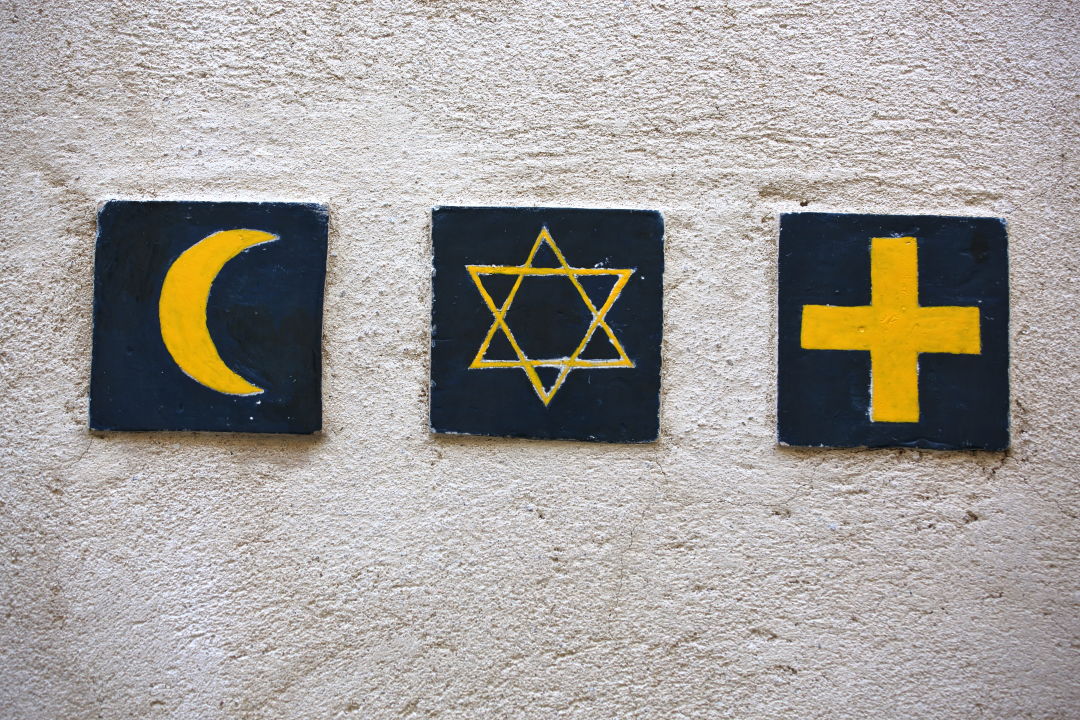How Are People Planning to Celebrate the Holidays This Month?

April should’ve been a month of celebration. It should’ve been a time where billions of people across the world gathered with their families and their communities to profess their faith. Instead, because of COVID-19, we are separated from one another.
“We’re in an incredible moment that is a pause button for the human story,” says Rev. Russell Levenson Jr. of St. Martin’s Episcopal Church.
Three major religious holidays, Judaism’s Passover, Christianity’s Easter, and Islam’s Ramadan, are all celebrated this month, but because of the health crisis and the “Stay Home, Work Safe” order, many religious leaders have been forced to turn to technology and alternate programming for their congregations.
Sohail Syed, president of the Islamic Society of Greater Houston, says ISGH has been posting online daily prayers as well as spiritual lectures from imams and scholars on topics such as staying calm, divine protection, and emotional intelligence.
“Thank God we have the technology,” says Rabbi Brian Strauss of Congregation Beth Yeshurun, which has been livestreaming Friday and Saturday services. “Let’s stay together as a community online.”
What’s powerful about this moment, adds Rabbi Scott Hausman-Weiss of Congregation Shma Koleinu, is that all of us are in the same boat. “COVID does not discriminate,” he notes, and so everyone is going through this time together, and will come out on the other side united in this shared experience.
Read below to find out how COVID-19 has impacted each holiday and how religious organizations are responding.
Passover
April 8–16
Told in the biblical book Exodus, Passover, which celebrates Moses leading the Jewish people out of slavery in Egypt, is “really the defining story” of Judaism and, therefore, has deeply influenced the Jewish faith, according to Hausman-Weiss. Passover's central premise is that members of the Jewish community came forth from a terrible and trying time into freedom, he says, a theme that feels especially salient during COVID-19.
Passover is celebrated through a ritual service and dinner, called a seder. Usually that means very large gatherings at homes, Strauss says. But it’s been difficult as many young people now have to hold a seder for the first time by themselves.
Strauss says Beth Yeshurun will be live-streaming three seders during the first two nights of Passover: one for everyone on the first night, and others for families and young professionals on the second night. They will also be providing ritual seder food for congregation members, adding, “We’re doing everything we can just to help out."
Hausman-Weiss says Congregation Shma Koleinu will be sharing a prerecorded seder for members to help lead them through the rituals. "The great bummer of this year is that we can’t be together physically,” he says, “but by keeping apart, we keep each other freer.”
Easter
April 12
Easter is the most important holiday in the Christian calendar, celebrating the resurrection of Jesus. For many, observances are held all the preceding week, also known as Holy Week, in honor of Jesus’s last actions before his death, including his entrance into Jerusalem (Palm Sunday) and the Last Supper (Maudi Thursday).
Many area churches, including Second Baptist, Unity of Houston, Memorial Drive Presbyterian Church, and the Met Church have announced plans to livestream their Easter services. St. Martin’s will as well, Levenson says.
Normally St. Martin’s would have six services throughout Easter Sunday. This year, they will livestream a 10 a.m. service and replay it at 6 p.m. They will also be streaming daily services during Holy Week and posting daily meditations.
Levenson says he is grieving that he won’t be with his congregation for the holiday. “I do think we’re supposed to be together,” he says, but COVID-19 has interrupted that. As a means of maintaining the community, St. Martin’s is emphasizing the Lord’s Prayer in every liturgy—or communal, public service—they post online. “Though we can’t be together physically, by saying ‘Our Father,’ we are connected spiritually,” Levenson says.
Ramadan
April 23–May 23
One of the holiest months of the year, Ramadan marks 30 days of daily fasting during the day for Muslims to commemorate the prophet Muhammed’s first Quranic revelation. It’s a time of prayer and reflection. As one of the five pillars of Islam, Ramadan is required for all able-bodied Muslims to observe, says ISGH's Syed.
“Congregation is key for celebrating Ramadan,” he says. “But that’s not going to happen this year."
The Islamic Society shut down its 23 mosques across the area back in February until the crisis is over. Syed says usually on the last day of Ramadan thousands of members of the Houston-area's Muslims community gather together to pray downtown or at NRG, neither of which will happen because of COVID-19.
However, Ramadan is a month of giving, in terms of both general charity and also Zakat, or almsgiving, which is another of the five pillars of Islam. “The right of the neighbor upon you is very important,” Syed says, and ISGH is working to help support those affected by the crisis. They have a meal distribution program as well as a COVID-19 Relief Fund.




